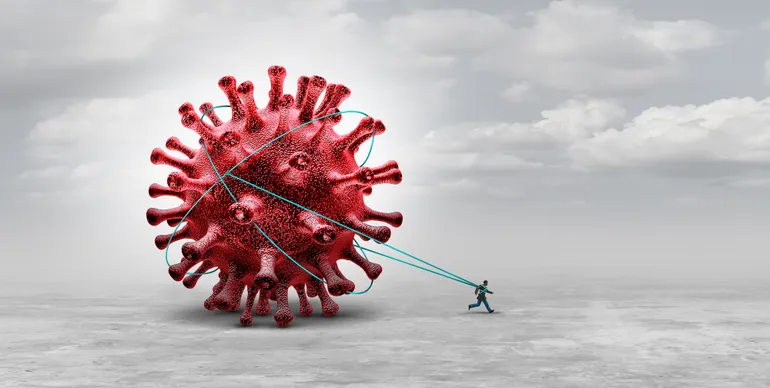Long COVID and Myalgic Encephalomyelitis/Chronic Fatigue Syndrome (ME/CFS) have been a mystery for researchers and healthcare professionals alike. The lingering symptoms of fatigue, brain fog, and sleep disturbances have baffled experts, leaving many patients struggling to find relief. However, recent breakthroughs in genetic research may hold the key to understanding these debilitating conditions and opening the door to new treatments.
The UK’s LOCOME project and the Metrodora Long COVID Observational study have made significant strides in identifying genes associated with post-viral syndromes. These genetic signatures offer valuable insights into the specific patient subgroups affected by long COVID and ME/CFS. By correlating genetic mechanisms with clinical phenotypes like post-exertional malaise and cognitive impairment, researchers hope to tailor treatments to individual patients more effectively.
The overlap between long COVID and ME/CFS has further fueled the urgency to find viable treatments. With estimates of healthcare costs and productivity losses amounting to $1 trillion for both conditions, the need for targeted therapies is more pressing than ever. The genetic discoveries made by PrecisionLife and other research initiatives offer hope for developing personalized treatments within the next 12 to 18 months.
Despite setbacks in clinical trials and funding cuts for COVID-related research, the search for effective treatments continues. PrecisionLife’s ongoing gene hunt has identified novel genes associated with long COVID and ME/CFS, as well as potential drug targets that could benefit both conditions. By validating these findings and developing a genetic risk assessment tool, researchers aim to revolutionize the way long COVID and related syndromes are diagnosed and treated.
Genes may not tell the whole story of long COVID, but they provide a crucial starting point for unraveling the mysteries of these conditions. From aberrant immunological responses to changes in the gut microbiome, genetic insights offer valuable clues about the underlying mechanisms at play. By developing a cheek swab test to assess genetic risk and stratify patients based on their genetic profile, researchers hope to tailor treatments to target the root causes of long COVID and ME/CFS.
The promise of clear genetic targets may also incentivize pharmaceutical companies to invest in long COVID research and development. By demonstrating the disease-modifying effects of targeting specific genes and proving clinical benefits through repurposed drugs, researchers aim to create a market for much-needed therapies. With a patient population desperate for relief and significant economic incentives, the potential for groundbreaking treatments for long COVID and ME/CFS is within reach.


